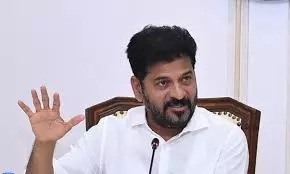Younger MLAs: Some say why not; others feel too risky

Hyderabad: Chief Minister A. Revanth Reddy’s proposal to lower the minimum age for contesting Assembly elections from 25 to 21 years has sparked a debate on youth involvement in politics, maturity, and whether the move can lead to meaningful change.
Concurring with the Chief Minister’s argument, Sumanth T., a postgraduate student, said, “If an 18-year-old can vote, why restrict the age for contesting elections to 25 years? Or even 21? What is the rationale or scientific basis for these limits? We already have 21 years as the eligibility age to contest elections for the Panchayati Raj bodies.”
Anushka B, a student, backed the idea as it gives the country “new energy and fresh perspectives of young people. Giving younger individuals a chance could bring much-needed change.”
J. Hitaishini, a UPSC aspirant, believes that when 21-year-olds can lead as civil servants and contest local body elections, extending this eligibility to higher offices is a natural progression.
“Young India today has exposure to diverse issues through technology and social media, and they should be allowed to actively engage in politics. This can disrupt dynastic politics and give ‘young voices’ a platform. The focus should be on strengthening children’s understanding of social sciences to better prepare for political careers in their youth. Give them a chance, and they will rise to the occasion,” she explained.
Children from the newer generation (GenZ) outscored their predecessors by almost two IQ points. When IQ increases, it improves their understanding and problem-solving skills and this could be considered as a major reason for reducing the minimum age limit for the Assembly elections, said Pravin. K, a postgraduate journalism student from Osmania University.
Goutham Juttukonda, a student of Osmania University, welcomed the efforts to lower the age limit, but he does not think that youth at such a young age could make a positive impact on society.
IT professional Omkar R. staunchly opposed the idea. “People at that age may lack maturity to handle the pressures of political life. Many may act impulsively or arrogantly, making it an unsuitable decision.”
Jyotsna S., a software professional, too rejected the proposal. “It doesn’t seem like an appropriate proposal to me. Many people struggle to manage their careers even at the age of 26 years. At 21 years old, they’re just finishing college and they need time to explore life before taking on such responsibilities.”
“It is an unrealistic idea. It places a tremendous burden on young representatives to remain free of external influences and manage immense responsibilities. The government should focus on capacity development and equipping youth with the necessary political knowledge over time,” said Sai Yashwanth Chilukoori, a UPSC aspirant
Sathwik Gowtham, a postgraduate student in journalism, said: “Let's assume the age for contesting elections is lowered to 21. Will political parties give them tickets to contest at such a young age? Do you really think the upper middle class, middle class and any other strata below can take the risk to enter politics, which is highly uncertain, at such a young age?”
“While the idea of encouraging youth in politics is good, simply lowering the age limit might not solve deeper systemic issues. So instead of changing the age limit, we should focus on broader reforms that empower young people effectively.” said Noel M., a journalism student.

